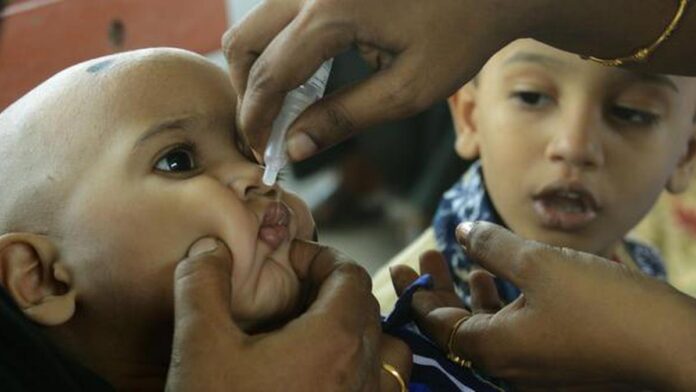Nagaland, a picturesque state nestled in the northeastern part of India, is embarking on a mission to administer polio drops to 1.55 lakh infants as part of its concerted efforts to combat the debilitating disease. This ambitious vaccination drive underscores the state’s commitment to safeguarding the health and well-being of its youngest citizens while contributing to the global goal of eradicating polio once and for all.
Polio, a highly infectious viral disease, primarily affects children under the age of five, leading to paralysis and, in severe cases, death. Despite significant progress in global polio eradication efforts over the years, the disease remains endemic in a handful of countries, including Afghanistan and Pakistan. However, countries like India have made tremendous strides in eliminating polio through rigorous vaccination campaigns and surveillance measures.
Nagaland’s decision to conduct a comprehensive polio vaccination drive is a testament to its proactive approach to public health. By targeting infants, who are most vulnerable to polio infection, the state aims to create a strong foundation of immunity within its population, thereby reducing the risk of polio outbreaks in the future.
The success of Nagaland’s vaccination drive hinges on several key factors, including widespread community engagement, efficient vaccine distribution channels, and robust monitoring and surveillance mechanisms. Health authorities and frontline workers are mobilizing resources and manpower to ensure that every eligible child receives the polio vaccine, regardless of their geographical location or socioeconomic status.
One of the challenges faced by health officials is reaching remote and inaccessible areas, where infrastructure limitations and logistical hurdles pose significant barriers to vaccine delivery. However, through innovative approaches such as mobile vaccination teams, community outreach programs, and collaboration with local leaders and organizations, efforts are being made to overcome these challenges and reach every child in need.
In addition to administering polio drops, health workers are also taking this opportunity to educate parents and caregivers about the importance of routine immunization and maintaining good hygiene practices to prevent the spread of infectious diseases. By empowering communities with knowledge and resources, Nagaland aims to build a culture of health and resilience that extends beyond the scope of this vaccination campaign.
Furthermore, the success of Nagaland’s polio vaccination drive relies heavily on the support and cooperation of parents, caregivers, and community members. By ensuring that children receive the recommended doses of the polio vaccine and adhere to the vaccination schedule, families play a crucial role in protecting their loved ones and contributing to the broader goal of polio eradication.
It is important to recognize that the fight against polio is not limited to vaccination efforts alone. Sustainable progress requires a multifaceted approach that addresses the underlying factors contributing to polio transmission, including poverty, inadequate sanitation, and lack of access to healthcare services. Nagaland, in collaboration with national and international partners, is working towards addressing these challenges through comprehensive public health interventions and infrastructure development initiatives.
As Nagaland marches forward with its polio vaccination drive, it sends a powerful message to the world: that with dedication, determination, and collective action, we can overcome even the most formidable health challenges. The state’s commitment to ensuring the health and well-being of its children serves as an inspiration to other regions grappling with similar issues and reaffirms the importance of global solidarity in the fight against polio.
In addition, Nagaland’s ambitious polio vaccination drive represents a significant milestone in the ongoing battle against a persistent threat to public health. By vaccinating 1.55 lakh infants, the state is not only protecting its youngest citizens from the debilitating effects of polio but also contributing to the global effort to eradicate the disease once and for all. With continued dedication and collaboration, we can envision a future where polio is nothing more than a distant memory, and every child has the opportunity to live a healthy and fulfilling life.



